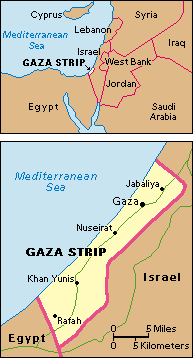Cease-Fire Gives Hope to People of Gaza
Wednesday, August 27th, 2014August 27, 2014
Yesterday, the government of Israel and leaders from the Palestinian group Hamas accepted an interim peace agreement to end a seven-week war in the Gaza Strip. The agreement was brokered by Egypt.
The current Israeli-Hamas hostilities began on July 8, several days after a Palestinian boy was murdered in an apparent reprisal for the murder of three Israeli teenage boys, whose bodies were found in the West Bank on June 30. Initially, Hamas claimed it was not responsible for the kidnapping of the Israeli teenagers, but on August 22, a high-level Hamas leader stated at a conference in Turkey that Hamas’s military wing, the al-Qassam Brigades, did, in fact, carry out the kidnappings. The Israeli crackdown on Hamas members in the West Bank after the teenagers’ bodies were found began a spiral of escalating violence, as Hamas responded by launching rockets into Israel. In turn, Israel bombarded Gaza by air and then launched a ground invasion on July 15.
More than 2,000 Palestinians, most of them civilians, have been killed in Gaza since July 8, and some 20,000 homes have been destroyed. On the Israeli side, 70 people have been killed in the conflict, 6 of them civilians.
Still, many experts believed that the status quo before the recent conflict could not continue. Political changes in Egypt, particularly the end of the rule of the Muslim Brotherhood there, have led to changes for Gaza. Hamas was closely allied with the Brotherhood. In 2013, after the ouster of president Mohamed Morsi, the new Egyptian government began closing off the tunnels between Egypt and Gaza. By some reports, nearly 800 tunnels—used to bring fuel, food, and building materials into Gaza—have been closed by Egypt. In addition to losing goods, Hamas lost revenue it had been raising by taxing the smuggled products. By the end of 2013, Hamas was finding it increasingly difficult to pay salaries to its civil servants in Gaza.

Israel and Egypt control the borders of the Gaza Strip. Both nations have been restricting the flow of goods into Gaza. (World Book map)
In the cease-fire, both parties agreed to end military action. Israel also agreed to open more border crossings to aid the flow of goods into Gaza, and Egypt agreed to reopen a border crossing that had been closed since 2013.
Additional World Book articles:



